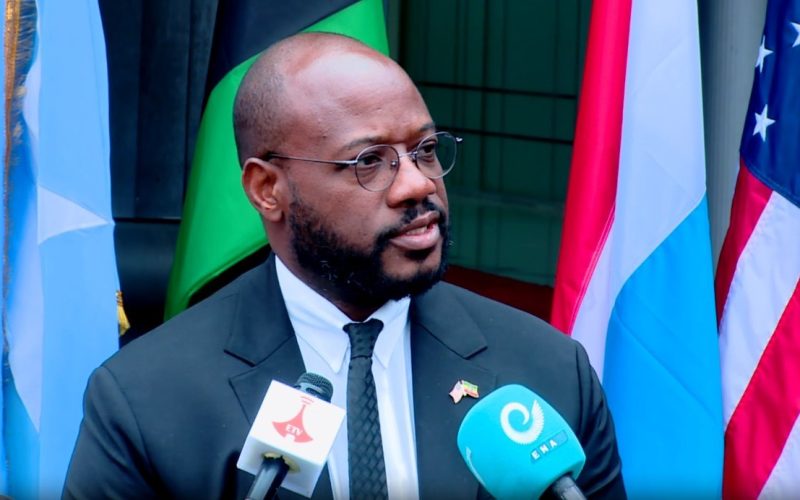The US Ambassador to Ethiopia, Ervin J. Massinga, recently visited the US compound in the Mercato area of Addis Ababa.
During his visit, Ambassador Massinga highlighted the historical significance of the American compound, recalling that it served as a refuge for many Ethiopians 87 years ago.
On February 12, 1937, during the three-day massacre in Addis Ababa carried out by Fascist Italy, American diplomat Cornelius Van Engert reported that over 750 Ethiopians found shelter in the embassy.
Ambassador Massinga emphasized that Ethiopians have been deprived of their right to live with dignity for the past 87 years.
He remarked that despite the passage of time, the violation of human dignity and the right to live by armed groups, robber bands, and government security forces continues unabated, indicating that lessons from history have not been heeded.
The ambassador urged Ethiopians to learn from their past, stressing the importance of respecting and protecting human rights and dignity even during times of war and conflict.
He advocated for resolving conflicts in different parts of the country through dialogue to protect innocent people from harm.
Ambassador Massinga also addressed the current conflicts in the Oromia and Amhara regions.
He called on the armed forces to resolve their political issues through dialogue, asserting that government measures should not close the door to negotiations.
He demanded an immediate end to the killing of innocents, illegal arrests and disappearances, and conflict-related sexual violence, urging that perpetrators be held accountable through transitional justice.
Specifically, Ambassador Massinga called on the Oromia Liberation Army, referred to by the government as Oneg Shene, to resume negotiations with the government that had started in Dar es Salaam, Tanzania.
He also urged the Fano militants in the Amhara region to engage in dialogue with the government, emphasizing that the disputed areas should be resolved through negotiations rather than force.
He highlighted the importance of national consultation and transitional justice in addressing Ethiopia’s current challenges and assured continued American support for these efforts.
The conflict in the Amhara region escalated after the federal government’s decision to “reorganize” the regional special forces a year ago, leading to clashes between government security forces and Fano militants.
The conflict’s origins trace back to the federal government’s decision to “reorganize” regional special forces, igniting tensions that have since spiraled into a protracted struggle in all parts of Amhara.
A six-month state of emergency was declared in the Amhara region on August, 2023, and was later extended for another four months, with about three weeks remaining until its completion.
Prime Minister Abiy Ahmed recently called for peace among the armed forces during the inauguration of the Nile Bridge in Bahirdar.
By advocating for dialogue and transitional justice, the US aims to support Ethiopia in resolving its internal conflicts and promoting lasting peace and stability.
